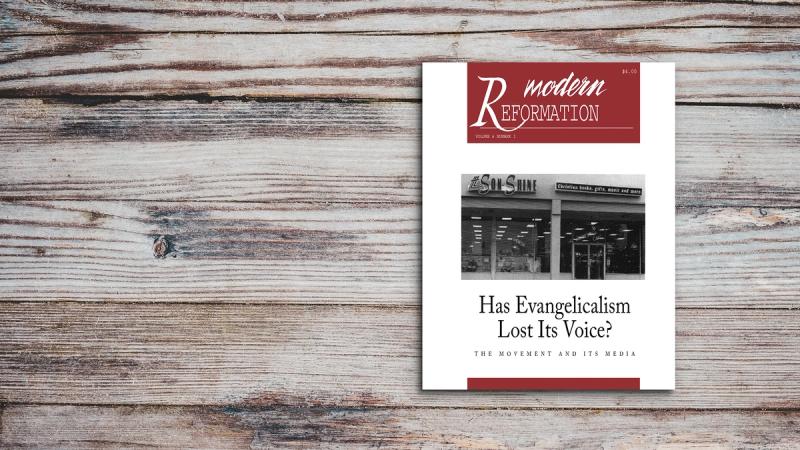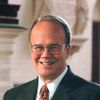One of the more interesting features of contemporary American Evangelicalism is the emergence of an evangelical academic elite. To be sure, the evangelical movement has always had intellectuals within its orbit. These intellectuals, however, have tended to live at the margins of both the secular academy and the movement itself. Despite the relative success of many evangelical liberal arts colleges, anti-intellectualism has limited the capacity of the evangelical community to nurture a vibrant scholarly tradition. A number of recent authors have lamented this situation, most notably Wheaton College historian Mark Noll in his widely read manifesto, The Scandal of the Evangelical Mind (1994). While some Reformed observers claim that this “scandal” is endemic to the evangelical theological condition, the sources of anti-intellectualism are deep and varied.
But the situation for evangelical scholarship today is dramatically different from even its recent past. It is difficult to assess how dramatic these changes are, but there are several signs that a sizable portion of the evangelical community is engaged in serious intellectual activity. These developments reflect the fact that more evangelicals have attended graduate school in the past thirty years. Two large Christian trusts even have programs which sponsor graduate study in premier secular universities. Visit almost any major research university, and you will find a group of evangelical students scattered throughout various disciplines. Indeed, you will likely find self-professed evangelicals among the most prominent of senior faculty at these universities. Many of these faculty members are contributors to a new Christianity Today publication, Books and Culture, which consciously models itself as a New York Review of Books for Christians. Some disciplines, especially philosophy and history, have attracted enough of a critical mass of evangelical scholars to organize professional academic societies. Perhaps the surest sign of this growing class of evangelical academics is a flourishing cottage industry of conferences, e-mail discussion groups, and even books which focus on the complex question of distinctively Christian scholarship.
Some of these efforts perpetuate the conventional evangelical mantras about the “integration of faith and learning” and the “need for a Christian worldview.” Taken in themselves, these slogans might suggest tired and misguided promises which have never been fulfilled by the evan-gelical community. College parachurch groups have invoked them for at least fifty years, but a worldview does not a theology make. The current revival of interest in Christian scholarship, however, does make effective use of two related changes in the academic landscape.
First, the secular universities’ rush toward diversity has, ironically, challenged their anti-Christian bias. Opportunities for Christian scholars are more open today because of university efforts to give everyone a place at the table. Cynical readings of this aspect of academic life picture evangelicals competing with feminists and ethnic minorities for the coveted status of most-favored victim of the secular regime. The point, however, is that Christian scholars ostensibly no longer need to hide their faith in order to participate in the academic enterprise.
A second, and more significant change, is a growing consensus in virtually every discipline that something is wrong with the standard Enlightenment account of how human beings know things and what it is that they know. This article is not the place to assess the possible effects, positive and negative, of so-called postmodern theory on the Reformed tradition, but it is important to note that many of the sweeping philosophical trends in the academy may indeed open the door for certain sophisticated Christian arguments. Many of this new breed of evangelical academics have done their homework and are fast becoming players in the larger world of ideas.
However, a recent conference on Christian scholarship gave me pause. Frankly, there seemed to be an overwhelming ignorance of theology bordering on indifference. Not one theologian addressed the conference; rather, the literary theorists and the philosophers seemed to be the new high priests of the evangelical elite.
It should be said that many of this new breed of evangelical academics share a suspiciously Reformed pedigree. References to J. Gresham Machen and Abraham Kuyper abound, especially among the key thinkers who are shaping how evangelicals view Christian scholarship. These references, however, tend to skim the surface of theological reflection. The younger scholars showed even less inclination to think in theological categories. I sensed that they had read more Walker Percy and Michel Foucault than Augustine or Calvin. Not everyone is called to be academic theologians, and Percy and Foucault certainly have bearing on theology, but those who aspire to be Christian scholars in any field need more theological equip-ping to do the ambitious work they hope to accomplish. It is a curious paradox that evangelical scholars are able and willing to do advanced research in their own areas, but invoke scholarly incompetence when it comes to basic historical theology.
This conference experience, however, reinforced my belief that Reformed critics need to examine themselves before faulting evangelicals. Such introspection may even lead to constructive proposals. The problems of theological education are well known. Academics grow up in the same churches as everyone else, and for many that means a pretty thin diet of confessional theology-even in Reformed churches. The improvement of church education is a formidable and long-term task. Another challenge for the Reformed faith falls more immediately on Reformed theologians and pastors: high quality engagement with the university, which is to say today’s university, not some fiction of yesterday’s. Evangelical scholars are not to be blamed for theological ignorance when it is difficult to identify constructive and rigorous Reformed writing engaged with current intellectual themes. The marginalization of theology from the university is another long story. There have been definite advantages for the preservation of orthodox Reformed theology because of its isolation from the mainstream academy. It would be a difficult case to make, however, that theology is flourishing as a discipline in America (Reformed or otherwise!). The opportunities which are present in our new academic situation suggest that something might be done.
As someone who has a lot to learn about these issues, my personal wish list includes two things. First, that there might be a conscious effort on the part of Reformed theology to enter into the debates about Christian scholarship. The evangelical audience is receptive to creative discussions of these ideas, and it already shows a predilection for Reformed insights. I would love to see a Primer on Reformed Theology for Humanities Students, especially if it were written in clear and exciting prose. Reformed seminaries might also sponsor courses in theology for scholars in other disciplines. Evangelical scholars are busy people, but they are committed to both the Christian and scholarship components of Christian scholarship. Second, Reformed theology needs to incorporate the questions of the modern academy (which includes mainstream theology) and make this scholarship more accessible to evangelical scholars. This is another difficult task because these new evangelicals are demanding academics. They are not the evangelicals you think you know, even if their theological knowledge is limited. If these things start to happen, the evangelical academic elite might even be lured into thinking theologically.






